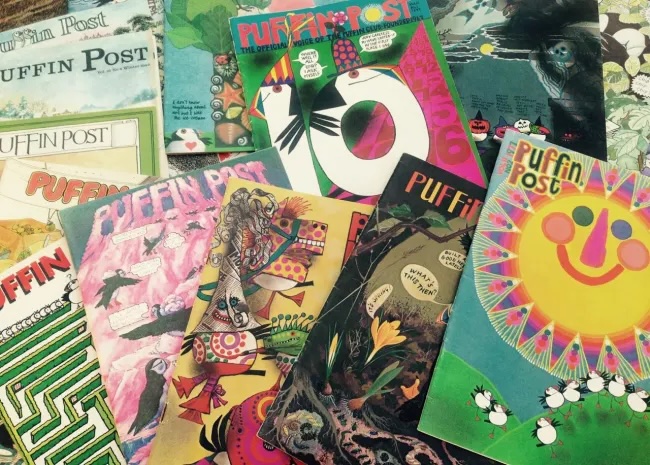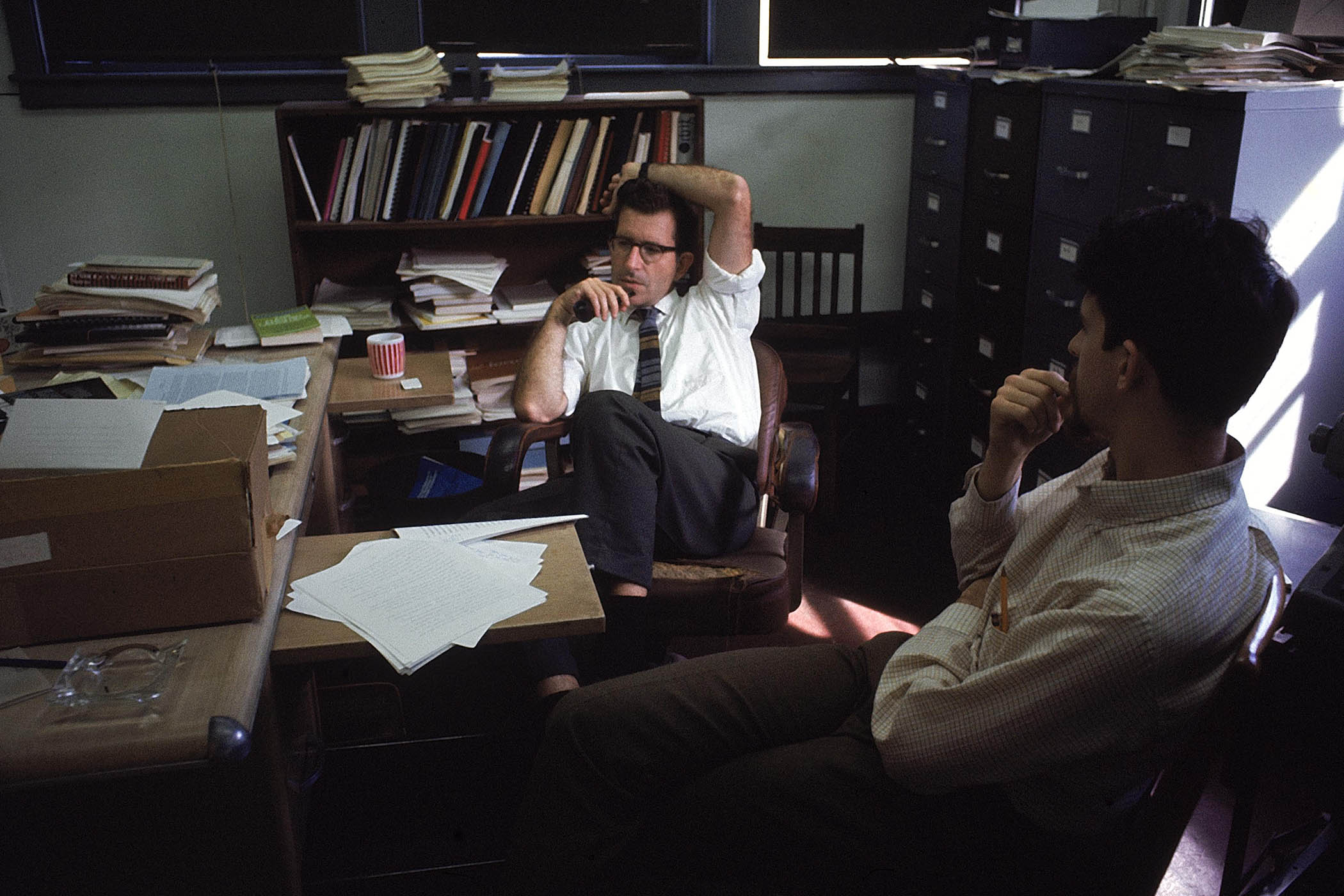In a newspaper, I read an obituary of Rosemary Sandberg, who in 1967, when she was an assistant to Puffin Children’s Books’ great publisher, Kaye Webb, founded the Puffin Post book club – and I’m overcome with powerful feelings. As a child, I belonged to two clubs: the Dennis the Menace fan club, membership of which earned you a Gnasher badge with real nylon hair (Gnasher, in case you didn’t know, was Dennis’s dog, and the pair were in the Beano); and the Puffin Club, which every quarter sent you a gorgeous magazine filled with pieces by and about your favourite writers: Rosemary Sutcliff, Alan Garner, Philippa Pearce. Back issues were kept – in my case, in pristine condition – in specially designed pink plastic folders. I sometimes wonder what happened to them.
It occurs to me that the Puffin Club, with its large, devoted membership – after just two months, 20,000 children had signed up – doesn’t only tell us something about reading, the end of which, I’m increasingly convinced, may be nigh: it speaks of other things we 21st-century people worry about, too. The first of these is the concept of deferred pleasure, now almost lost. As a child, I loved waiting for the Puffin Post to hit the doormat, an oddly adult pleasure: an envelope I could call my own!
The second is the matter of connection. I never met another Puffin Club member; I never went on one of its jaunts for prize winners (one such outing was to Lundy Island, so children could see real-life puffins; it took place on a stormy day long before the invention of health and safety, and the kids were tied to the boat with rope so they didn’t fall overboard). But this hardly mattered. I had an imaginative kinship with others who knew the secret Puffin code words – “Sniffup” was hello – and this was somehow enough. It was so much more gentle and safe than social media – and no more lonely either, I’d guess.
A gut reaction
Jokes about my unstinting commitment to journalism were rife last week. Not for me a simple reporting job on the story that pills comprising faecal matter may soon be deployed in the fight against antibiotic-resistant infections. No: I embedded myself in the news, albeit unwittingly, when I was taken to hospital by ambulance having contracted a serious infection myself (chemotherapy had disturbed a long-lurking gut bacterium, and it was wreaking havoc). A culture of this invisible fiend having been grown, it turned out that there were, after all, antibiotics available to stop it in its tracks. But even through my morphine haze, I grasped the stakes. There are 450 microbiome medicines currently in development. So-called poo pills will soon be saving lives.
The world of female frenemies
I’m bemused by the confused response of some to Sarah Vine’s complicated, and now broken, friendship with Samantha Cameron, as revealed in her memoir, How Not To Be a Political Wife (Vine is a Daily Mail journalist and the ex-wife of Michael Gove). Don’t these people know that literature, from Jane Austen on, is positively strewn with female frenemies? (Think of Harriet Smith and Emma Woodhouse in Emma.)
Then again, as the editor of The Virago Book of Friendship, this is my area of expertise. Vine’s painful longing for Cameron’s radiant approval reminds me of the relationship between the writer Katherine Mansfield and her schoolfriend Ida Baker, aka LM. This was long before the days of the school run, of course, but just like Cameron, Mansfield sometimes relied on LM for menial tasks, the generous completion of which left her feeling both intensely grateful and utterly overcome with irritation.
Newsletters
Choose the newsletters you want to receive
View more
For information about how The Observer protects your data, read our Privacy Policy
Related articles:



